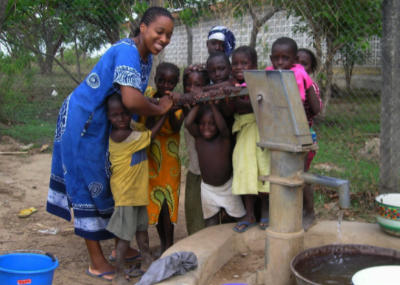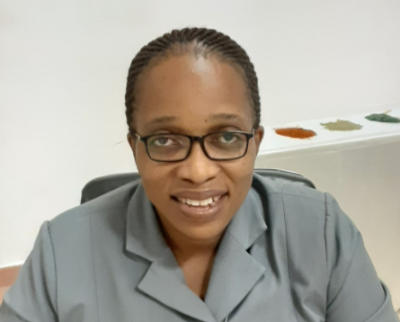 As the world concentrates on the prevention and elimination of Covid-19 other diseases can be forgotten. Malaria is one of these.
As the world concentrates on the prevention and elimination of Covid-19 other diseases can be forgotten. Malaria is one of these.
Recent good news from WHO (October 2021) on a malaria vaccine for children can bring great improvement to the global picture. However, disruption in services due to the Covid- 19 pandemic threatens the progress made in the last two decades.
According to the World Health Organization (WHO)
- In 2019, there were an estimated 229 million cases of malaria worldwide.
- The estimated number of malaria deaths stood at 409 000 in 2019.
- Children aged under 5 years are the most vulnerable group; in 2019 they accounted for 67% of all malaria deaths worldwide.
Sister Nkeiruka Edochie works in Lagos, Nigeria in a poor urban area called Amukoko. She explains the situation in her district. “Malaria is a major disease burden in the area. Children and pregnant women are the most vulnerable. Plasmodium falciparum is the dominant malaria species. The densely populated slum area where we are is a high-risk area for malaria.” One case Sister Nkeiruka relates is of a three-year-old child brought to the clinic by his mother. The child had fever, coughing, and catarrh, as well as feeling cold for a week. The child looked weak and dull. The mother had tried to medicate the child herself, but with no result. The clinic immediately took steps to reduce the child’s temperature and diagnosed malaria with a blood test. The child received treatment with anti-malarial drugs. She also started an antibiotic for an accompanying respiratory infection. The mother came back a week later with the child for review. She was cheerful and grateful to God and to the Clinic for the child’s full recovery. The temperature was normal and the child looked healthy and was playful with smiles.
 Prevention of malaria is the key factor in the control of the disease. In Amukoko, there is health education both within and outside the clinic on how to prevent the breeding spaces of mosquitoes. This helps the elimination or reduction of the transmission. Environmental cleanliness is very important to prevent the growth and development of mosquitoes. In a slum area the disposal of waste and basic sanitation are huge problems. The clinic staff encourages the use of insect repellent and treated mosquito nets. Potholes on the roads are filled and cans and buckets are not left uncovered. Bushes are cut and grasses trimmed for prevention of breeding grounds. People are advised to seek medical advice if they notice malaria symptoms like fever and chills, headache, weakness, bitter taste, body aches etc.
Prevention of malaria is the key factor in the control of the disease. In Amukoko, there is health education both within and outside the clinic on how to prevent the breeding spaces of mosquitoes. This helps the elimination or reduction of the transmission. Environmental cleanliness is very important to prevent the growth and development of mosquitoes. In a slum area the disposal of waste and basic sanitation are huge problems. The clinic staff encourages the use of insect repellent and treated mosquito nets. Potholes on the roads are filled and cans and buckets are not left uncovered. Bushes are cut and grasses trimmed for prevention of breeding grounds. People are advised to seek medical advice if they notice malaria symptoms like fever and chills, headache, weakness, bitter taste, body aches etc.
In Mile Four Hospital, Abakaliki, Nigeria, Sister Chiagoziem Onwuzuruike is a medical doctor. Set in a rural area, patients coming to Mile Four are at a higher risk than urban dwellers. The children she sees on a daily basis are also from low-income families. These are more at risk than children from wealthier families. Sister Chiagoziem also talks about prevention. Health education happens at outpatient and antenatal clinics. There is early treatment and prophylaxis of pregnant women. The Government provides the treated mosquito nets and the hospital distributes them.
In Tanzania, East Africa, Sister Maria Borda worked as a doctor in Makiungu Hospital for many years. Currently she is working in Nangwa. She explains the situation in Tanzania and the government schemes for prevention. Malaria infection during pregnancy is a major public health problem in Tanzania. Pregnancy reduces women’s immunity. Thus, they are more susceptible to diseases, including malaria infection. Maternal malaria increases the risk of spontaneous abortion, stillbirth, maternal anaemia, premature delivery, intrauterine growth retardation, severe disease and death.
